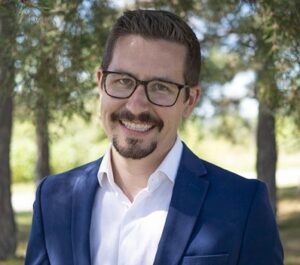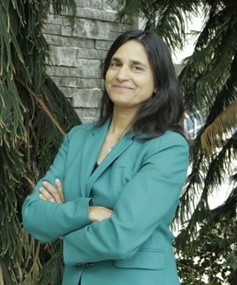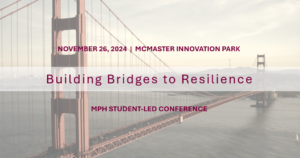
SPONSORED BY:
Thank you to our generous sponsors who have helped make this conference possible.

Graduate Students Association (GSA) Learn More
Advocate for the needs of the collective, act as a resource, and provide support and services that improve the graduate student experience at McMaster.

Alumni Association Learn More
Stay connected and inspired with McMaster’s Alumni Association! We’re dedicated to fostering a lifelong connection with our students and alumni community, offering exclusive networking opportunities, career development resources, and events to keep the Marauder spirit alive. Whether you’re looking to reconnect, give back, or grow professionally, the McMaster Alumni is here to support you every step of the way. Join us as we build a stronger, more vibrant McMaster community together!

Office of the Provost Learn More
The Office of the Provost and Vice-President (Academic) supports the students, staff, faculty and researchers who drive innovation to build a brighter world.
Expandable List
Our Mission: To bring together MPH students from across Canada, international partners, public health professionals, policymakers, and academics to foster collaboration, innovation, knowledge sharing, and networking.
The McMaster Public Health Student-Led Conference (MPHSLC) is an annual conference planned and coordinated by Master of Public Health graduate program candidates. The conference serves as an opportunity for participants to showcase their research, network with public health professionals, and acquire new skills and knowledge while discussing current public health challenges. Past themes have included community engagement in public health, facing the future of public health, and current perspectives on climate change and health.
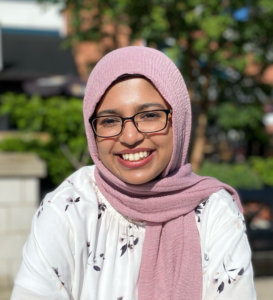 |
Juwairiya Ahmad2nd Year MPH Student, Co-Chair Public Health Interests: Healthcare Equity & Accessibility, Mental Health. |
 |
Syrine Gamra2nd Year MPH Student, Co-Chair Public Health Interests: Health policy and implementation science. |
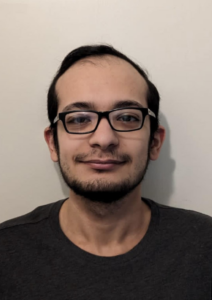 |
Peter Yassa2nd Year MPH Student, Finance Coordinator Public Health Interests: Epidemiology and biostatistics. |
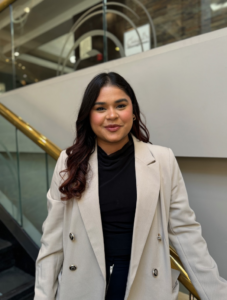 |
Harveen Saini2nd Year MPH Student, Outreach Coordinator Public Health Interests: Knowledge mobilization, healthcare accessibility, equity for all! |
 |
Demarah Downie2nd Year MPH Student, Outreach Coordinator Public Health Interests: Health Promotion and knowledge translation. |
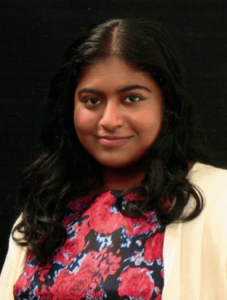 |
Jeanna Pillainayagam2nd Year MPH Student, Speaker Coordinator Public Health Interests: Health policy, promotion, and programming! |
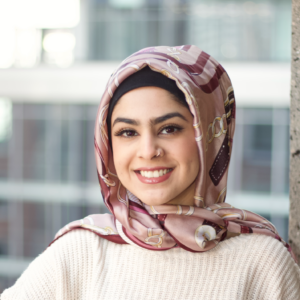 |
Hibah Syed2nd Year MPH Student, Social Media Coordinator Public Health Interests: Making healthcare accessible to everyone! |
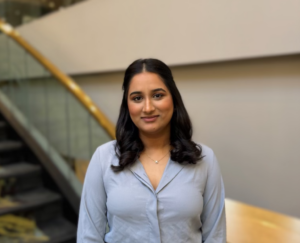 |
Manasvi Vanama2nd Year MPH Student, Logistics Coordinator Public Health Interests: Epidemiology and chronic disease prevention. |
 |
Tharumatha Thillainadarajah1st Year MPH Student, First-Year Representative Public Health Interests: Epidemiology, Health policy and equity. |
 |
Katrina Shen1st Year MPH Student, First-Year Representative Public Health Interests: Health equity, mental health, and improving the health of people experiencing homelessness. |
 |
Mays Alhellawi1st Year MPH Student, First-Year Representative Public Health Interests: Working with drug users to create effective harm reduction programs and advocating for maintenance of these spaces within our communities. |
Building Bridges to Resilience: Integrating Research, Practice, and Lived Experience for Community Health and Well Being
This theme highlights the necessity of combining research, practice, and the lived experiences of community members to address public health challenges effectively. By integrating these elements, we can develop holistic and sustainable solutions that are both effective and culturally relevant.
Research Integration: Research provides the essential foundation for understanding public health issues and informing effective interventions. This integration ensures that strategies are based on the latest evidence and best practices, enhancing the overall impact of public health initiatives.
Practical Implementation: Effective public health practice bridges the gap between theory and real-world application. This involves designing and implementing programs that are adaptable to community needs, securing funding, and navigating complex healthcare systems to ensure tangible benefits.
Lived Experience: Incorporating the lived experiences of community members brings crucial context and empathy to public health strategies. These personal narratives help ensure that interventions are relevant and effective, resonating with those directly impacted.
Combining research, practice, and lived experience fosters a comprehensive view of public health. This holistic approach not only aims to prevent and treat disease but also promotes overall well-being and quality of life, building stronger, more resilient communities.
CONFERENCE SCHEDULE |
|
REGISTRATION |
9:00 AM – 9:30 AM |
OPENING REMARKS &
|
9:30 AM – 9:45 AM |
SPEAKER #1 Research:
|
9:45 AM – 10:15 AM |
SPEAKER #2 Practice:
|
10:15 AM – 10:45 AM |
COFFEE BREAK |
10:45 AM – 11:00 AM |
SPEAKER #3 Lived Experience:
|
11:00 AM – 11:30 AM |
KEYNOTE SPEAKER:
|
11:30 AM – 11:55 AM |
LUNCH |
12:00 PM – 1:00 PM |
POSTER PRESENTATION
|
1:00 PM – 2:00 PM |
WORKSHOP SESSION #1:
|
2:00 PM – 2:40 PM |
WORKSHOP SESSION #2:
|
2:45 PM – 3:25 PM |
CLOSING REMARKS
|
3:30 PM – 4:00 PM |
Keynote SpeakerDr. Thomas Piggott
|
Dr. Thomas Piggott (pronouns he/him) started with Peterborough Public Health in December 2021. In his position as MOH/CEO, Dr. Piggott brings experience working at various levels of public health in Canada and internationally. Prior to Peterborough, Dr. Piggott worked as MOH and VP lead for Population/Rural & Remote Health in the northern region of Labrador and as a field doctor with Médicins Sans Frontières (Doctors Without Borders) in the Democratic Republic of the Congo. Dr. Piggott completed medical training, residency in Public Health and Preventive Medicine and his PhD in Health Research Methods at McMaster University. He is involved in research, teaching, clinical work and a father of young children. |
Speaker 1: ResearchDr. Sujane Kandasamy
|
Dr. Sujane Kandasamy is an Assistant Professor in the Department of Medicine at McMaster University and Adjunct Faculty in the Department of Child and Youth Studies at Brock University. She is a health research methodologist and intersectional environmentalist with expertise in mixed method research designs, community-engaged practices, knowledge mobilization, and planetary health/environmental stewardship within health care. She studies early origins and prevention of chronic disease (cardiovascular disease, type 2 diabetes) and chronic disease risk factors across the life-course, with a special attention on the health of underserved communities. She is committed to the implementation of collaborative community-based partnerships to collect and deliver evidence-informed knowledge that improves the health of people and the planet. She holds a HBSc (Biology), BA (Anthropology), MSc (Health Research Methodology) and a PhD (Health Research Methodology). |
Speaker 2: PracticeDr. Sonia Anand
|
Dr. Sonia Anand is a Professor of Medicine and Epidemiology at McMaster University, is the Director of the Chanchlani Research Centre focused on Health Equity Research, and is a Senior Scientist at the Population Health Research Institute. Dr. Anand received a Doctor of Medicine from McMaster in 1992, Internal Medicine Training at McMaster and a Fellowship of the Royal College of Physicians and Surgeons of Canada in 1996. After additional clinical training in thrombosis and in vascular medicine at Harvard’s Brigham and Women’s Hospital, Dr. Anand works as a vascular medicine specialist at Hamilton Health Sciences and McMaster University. Dr. Anand further received her Master’s in Clinical Epidemiology at McMaster in 1996 and Ph.D. in Health Research Methodology at McMaster in 2002. She holds the Canada Research Chair in Ethnic Diversity and Cardiovascular Disease and the Heart and Stroke Foundation of Ontario/Michael G. DeGroote Chair in Population Health Research. Her present research focuses upon the environmental and genetic determinants of vascular disease in populations of varying ancestral origin, women and cardiovascular disease. Dr. Anand’s work is widely published amongst academic journals with over 475 scientific publications, and in 2019 she was inducted as a Fellow to the Canadian Academy of Health Sciences. In 2020 she received the Lifetime Achievement Award for Diabetes from the South Asian Health Foundation, UK. In 2021, Dr. Anand joined the National Heart and Stroke Foundation as a Board member. In 2022, Dr. Anand received the Margolese National Heart Disorders Prize and was inducted as a Fellow of the Royal Society of Canada. In 2023, she was awarded the YWCA Women of Distinction award. As of July 2023, Dr. Anand has taken on the role of Associate Vice-President, Global Health. |
Speaker 3: Lived ExperienceLindsay Jennings
|
Lindsay Jennings is a person who survived incarceration, homelessness, substance use and intimate partner violence. Lindsay worked frontline for years at organizations such as John Howard Toronto, PASAN, and most recently Rittenhouse: A New Vision. She is also a Research Associate with Carleton University: Tracking IN Justice Project and a Community Investigator at McMaster: Family Department of Medicine. Lindsay is a passionate and professional advocate for the Human and Health Care Rights of currently incarcerated individuals, and over the past years has been dedicated to addressing the preventable deaths in custody, and more ethical and supportive processes for the families and those impacted by death in prisons/jails. |
Workshop 1: Lead by Jared KunarWe will explore a model for career discovery and discuss strategies to remain adaptable during uncertain and turbulent times in the labor market. Understanding that a career is something you develop over time, not just something you find, we will review ways to explore, reflect, develop, and connect to build your career. Additionally, we will examine the interview process and develop pre-prepared answers to make your next interview experience less stressful and more impactful. |
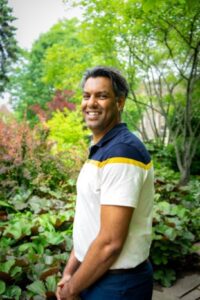 Jared is a McMaster University alumnus with over 10 years of experience in career development. For the past 8 years, he has been dedicated to supporting the careers of McMaster University students, initially within the Faculty of Science and more recently through the Student Success Centre. Currently, Jared is working on a pilot project aimed at building career services for students, helping them leap from graduate programs into the workforce or academia. Jared is a McMaster University alumnus with over 10 years of experience in career development. For the past 8 years, he has been dedicated to supporting the careers of McMaster University students, initially within the Faculty of Science and more recently through the Student Success Centre. Currently, Jared is working on a pilot project aimed at building career services for students, helping them leap from graduate programs into the workforce or academia.
Jared is known for his out-of-the-box job search strategies, and he holds over 650 one-on-one meetings with students each year, helping them secure internships, co-ops and full-time employment. His specialty includes resumes, interview coaching, and networking strategies. With a blend of expertise, professionalism, optimism, and approachability, Jared makes students feel right at home. He’s all about providing personalized support to help them achieve their career goals—and he’s not afraid to bend the rules to make it happen. |
Workshop 2: Lead by Renata HallIn this workshop, we will begin to orient our discussion towards the principles, best practices, and experiences of EDIA and Anti-Oppression specific to engaging in community work and to team dynamics and culture. This workshop is grounded in unpacking the interpersonal and systemic behaviors, attitudes, and exclusionary practices that proliferate harm, inequities, and create barriers to psychologically safe and inclusive spaces for staff and community members in social service structures and organizations. With a focus on unpacking how systemic and interpersonal biases, stereotypes and microaggressions affect a myriad of equity deserving and marginalized groups, it is hoped the audience will develop knowledge on the impact of interpersonal and systemic harms and develop knowledge on countering biases, stereotypes and microaggressions to develop a culture grounded in belonginess and inclusion. Learning Outcomes:
|
 Renata Hall is a PhD candidate, published Black feminist scholar, Woman of Distinction 2022 Awardee, co-creator of the Learning in Colour digital platform, and Inclusion and Anti-Racism Education Manager at McMaster University. Renata lives all things social justice through her counseling, teaching, and research pursuits. She loves building community connections, challenging the status quo, and amplifying the voices of the margins across Hamilton and the GTA. Renata Hall is a PhD candidate, published Black feminist scholar, Woman of Distinction 2022 Awardee, co-creator of the Learning in Colour digital platform, and Inclusion and Anti-Racism Education Manager at McMaster University. Renata lives all things social justice through her counseling, teaching, and research pursuits. She loves building community connections, challenging the status quo, and amplifying the voices of the margins across Hamilton and the GTA. |
We are excited to invite students to submit abstracts for poster presentations at the 2024 McMaster Public Health Student-led Conference (MPHSLC). This year’s theme, Building Bridges to Resilience: Integrating Research, Practice, and Lived Experience for Community Health and Well-Being, encourages students to showcase their innovative research and practical projects that address current public health challenges. This is an excellent opportunity to share your work, network with peers and professionals, and gain valuable feedback from esteemed faculty members.
The deadline to submit your abstract is November 4th at 11:55 p.m. Please note that participants will need to bring their own printed posters. Posters will be evaluated by a panel of faculty judges, and awards will be presented to the top posters during our closing ceremony. Submit your abstract today and be part of the conversation driving positive change in public health!
Submit your abstracts via this link: https://forms.gle/KTU9Sq8weKjm3B6M8.
For any queries, please email mphslc@mcmaster.ca.

